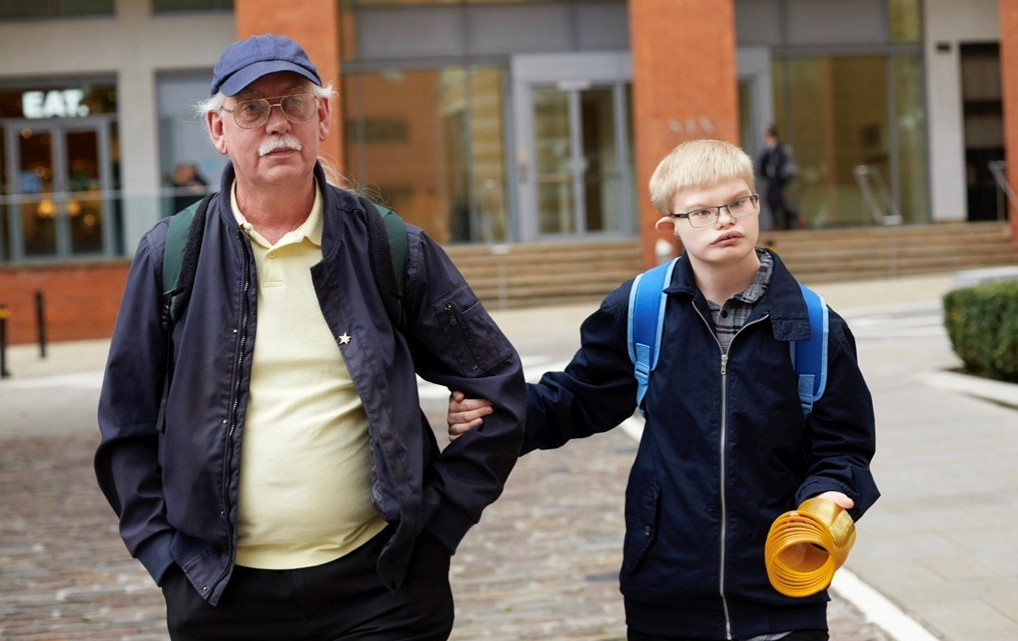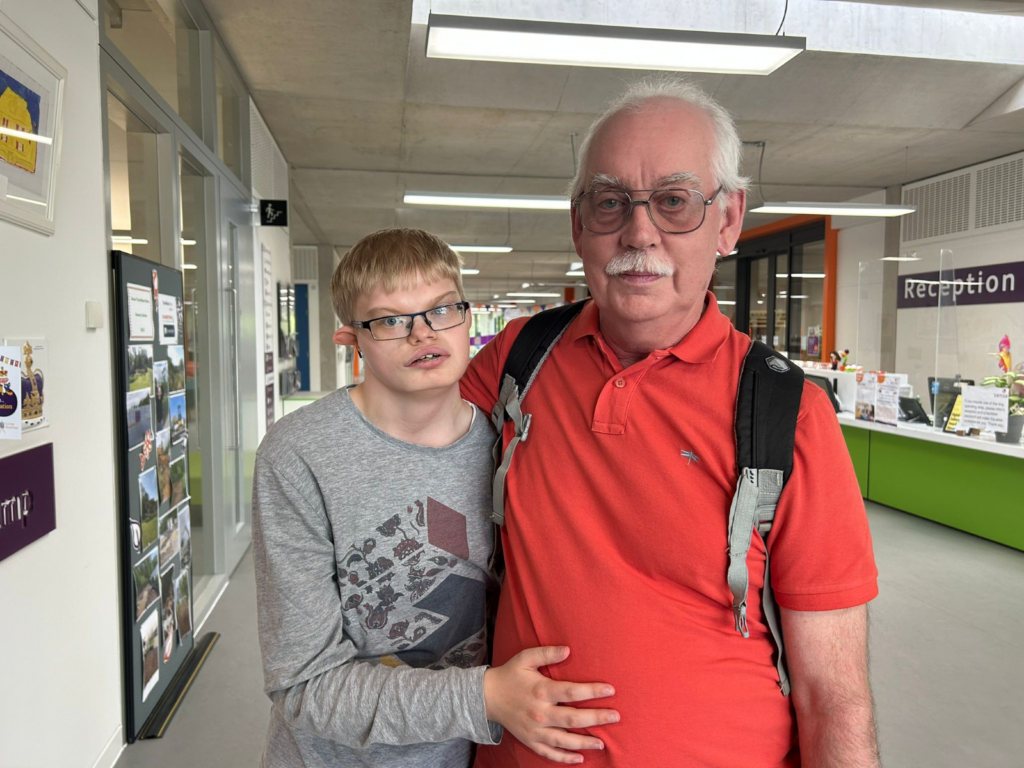A third of disabled people forced to cancel Christmas because they can’t afford it
- Many will go without Christmas presents, festive food or even meeting friends or family, as new research highlights the impact of the cost-of-living crisis on disabled people.
- More than half of disabled people are in debt and two thirds are constantly worried about bills, as the disability charity, Sense, urgently call on the government to provide financial support.

7 December 2023 – A third of disabled people will be forced to cancel Christmas this year, as they struggle to cope with unbearable costs. That’s according to grim new research by the national disability charity, Sense, who are urgently calling for more financial support to help the most vulnerable households this winter.
Spiraling costs have put more than half (53 per cent) of disabled people into debt, and two thirds (66 per cent) say they are constantly worried about bills. Now, as the country looks forward to the Christmas holidays, many disabled people say they won’t be able to celebrate.
A third (33 per cent) of disabled people told Sense that they will not celebrate Christmas this year because of the financial pressures they face. More than a third (34 per cent) said they will not see any friends or family or buy any festive food (37 per cent). Almost half (48 per cent) said they won’t buy any presents, while two in five (42 per cent) will not turn on any festive lights because of fears around the cost of energy.
Disabled people, who often have lower incomes and face higher living costs, have been disproportionately impacted by the current crisis. They face higher living costs, paying for specialist diets and therapies, and for energy too – heating is a must for people who aren’t mobile and have to regulate their body temperature – and then there’s the cost of running essential equipment, such as breathing machines and feeding pumps.
Sense supports people living with complex disabilities, whom the research focuses on. There are 1.6 million people with complex disabilities in the UK, living with two or more disabilities, and requiring high levels of support. Sense has already provided direct financial support to some of the most vulnerable households, worth a total of half a million pounds.
The research reveals the measures disabled households are taking to save money, with more than half (57 per cent) turning the heating down or off, more than a third (35 per cent) skipping meals and almost a quarter (24 per cent) turning to food banks.
In last month’s Autumn Statement, the government announced that welfare benefits would be uprated by 6.7% from April next year. However, Sense says this doesn’t come close to providing disabled benefits claimants the money they need to afford the cost of essentials, such as energy, continuing to rise.
Sense is calling for emergency targeted financial support now to help the most at risk households cope with spiraling costs, and a plan to support disabled people and their families in the long-term.
Richard Kramer, Chief Executive of Sense, said:
“With disabled people living in debt and worrying about the next bill, it shouldn’t be a surprise that so many are cancelling Christmas plans.
“And yet, today’s research is a timely reminder of what some of the most vulnerable households in the country are going through.
“Every day, disabled people are having to make impossible choices, like whether to eat or heat the home. And Christmas, far from being a time for celebration, has just become an additional, unbearable expense.
“It doesn’t have to be like this. The government must act now to bring in targeted financial support to those who need it over the winter.”
More than 80,000 people have signed Sense’s petition calling on the government to do more to support disabled people through the cost-of-living crisis. For more information, or support, visit: www.sense.org.uk/costofliving
Case study: ‘Geordie and I will spend the whole period by ourselves for the first time ever‘

Keith Butler, 72, and his partner Helen Butler, 64, live in Redditch, Worcestershire, and are full-time carers for their 22-year-old son Geordie. Geordie has CHARGE syndrome, is deafblind and autistic.
The Christmas break is usually extra special for the family. When Geordie was 17 months old, Keith and Helen were asked to foster him as he had never been out of hospital and give him a Christmas at home. By the end of the festive period, Keith knew he wasn’t giving Geordie back and, having “found his purpose in life”, took early retirement from his engineering career, aged 51, to care for him. Some 18 months on, the couple adopted Geordie.
But this year, Keith admits the cost-of-living crisis is affecting them so badly he is relieved Helen will be in hospital over Christmas because it will save them money.
Their income, made up of Keith’s pension and Geordie’s Universal Credit, is limited and they face spiralling costs. The biggest is energy, with additional use related to Geordie’s needs, including Geordie’s feeding pump and electric bed to help him lie down. Other costs include transport. Geordie recently completed his education, meaning his transport is no longer subsidised and his parents pay £2,250 a year to get him to day services at Sense Touchbase Pears in Birmingham.
Keith said: “Helen is going into hospital on December 19 for an operation. I don’t want to seem callous, but she will be in for weeks and that will save us money over the most expensive time of the year. Geordie and I will spend the whole period by ourselves for the first time ever.
“We have scaled back everything we can, except for Geordie who doesn’t understand Santa has a budget. His three older siblings will only have a token gift, and likewise our six grandchildren.”
For Keith, the best way for the government to help families like his, is to introduce a social energy tariff to help households struggling to pay their energy bills.
He said: “What we really need is a social tariff, and lots of people like Martin Lewis have been campaigning for this for years but absolutely no progress has been made. I understand it may be complex to resolve, but it can’t be kicked into the long grass anymore. My family and others need it right now. We can’t wait another winter.”
References:
*The research was conducted by Censuswide, on behalf of Sense.
1,005 UK respondents with complex disabilities (18+) were surveyed between 2 October and 9 October 2023.
Censuswide abide by and employ members of the Market Research Society which is based on the ESOMAR principles and are members of The British Polling Council.
Contact Sense’s media team
Email: [email protected]
Phone number: 0203 833 0611
